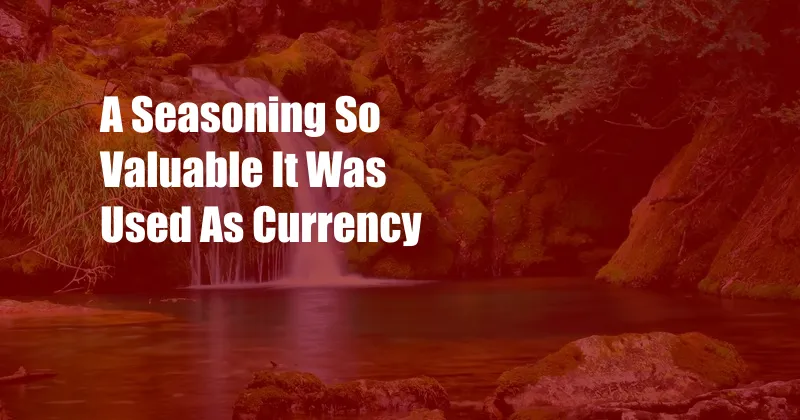
Salt: The Precious Commodity That Shaped History
I remember the first time I heard the story of how salt was once so valuable it was used as currency. I couldn’t believe that something so common and inexpensive today was once worth its weight in gold. But as I learned more about the history of salt, I realized just how important it has been to human civilization throughout history.
Salt is a mineral composed primarily of sodium chloride (NaCl), and it is essential for human life. Our bodies use salt to regulate blood pressure, muscle function, and fluid balance. Without salt, we would quickly become ill and die. In ancient times, salt was even more important than it is today, as it was the only way to preserve food and prevent spoilage. Without salt, people would have had to eat their food fresh, which would have been difficult and dangerous in the days before refrigeration.
Salt as Currency
Because of its importance to human survival, salt has been used as currency in many cultures throughout history. In ancient China, salt was used to pay taxes and was even used as a form of currency. In ancient Rome, salt was so valuable that it was used to pay soldiers their salaries. The word “salary” is actually derived from the Latin word for salt, “salarium.” Even today, some countries still use salt as a form of currency, such as the small island nation of Palau.
The History of Salt
Salt has been used by humans for thousands of years. The earliest evidence of salt production dates back to the Neolithic period, around 6000 BC. In ancient Egypt, salt was used to preserve mummies and was also used as a form of currency. In ancient Greece, salt was used to make cheese and was also used as a seasoning. In ancient Rome, salt was used to make bread, and it was also used as a form of currency.
In the Middle Ages, salt was a major source of revenue for governments. In England, salt was taxed heavily, and this tax was one of the main sources of income for the government. In France, salt was so valuable that it was known as “the king’s salt” and was only available to the wealthy. In the Americas, salt was traded by Native Americans and was used as a form of currency.
The Importance of Salt Today
Salt is still an important mineral today. It is essential for human health, and it is also used as an ingredient in food, as a preservative, and as a fertilizer. In addition, salt is used to make a variety of industrial products, such as glass, paper, and soap. Salt is also used to melt ice on roads in the winter.
Tips for Using Salt
- Use salt sparingly. A little salt goes a long way, and too much salt can be harmful to your health.
- Choose iodized salt. Iodized salt is salt that has been fortified with iodine, which is an essential nutrient for human health.
- Store salt in a cool, dry place. Salt can absorb moisture from the air, which can make it less effective.
Salt and Health
Salt is an essential mineral, but too much salt can be harmful to your health. Excessive salt intake can lead to high blood pressure, heart disease, and stroke. The American Heart Association recommends that adults consume no more than 2,300 milligrams of sodium per day. This is equivalent to about one teaspoon of salt.
FAQ
- What is salt?
Salt is a mineral composed primarily of sodium chloride (NaCl). - What is salt used for?
Salt is used for a variety of purposes, including food preservation, seasoning food, and making industrial products. - Is salt good for you?
Salt is essential for human health, but too much salt can be harmful. The American Heart Association recommends that adults consume no more than 2,300 milligrams of sodium per day. - What are the symptoms of salt deficiency?
Symptoms of salt deficiency include fatigue, muscle cramps, and nausea. - What are the symptoms of salt overdose?
Symptoms of salt overdose include thirst, vomiting, and confusion.
Conclusion
Salt is a precious commodity that has played a vital role in human history. It is essential for human health, and it has been used as a form of currency, a preservative, and a seasoning for thousands of years. Today, salt is still an important mineral, and it is used in a wide variety of industrial and consumer products.
Are you interested in learning more about salt? If so, there are many resources available online and in libraries.